Discover PreOccupation: A Not-So-Brief History of Palestine
PreOccupation: A Not-So-Brief History of Palestine

PreOccupation: A Not-So-Brief History of Palestine
Author: Bassam
Subscribed: 186Played: 3,048Subscribe
Share
© All rights reserved.
Description
This podcast is a deep dive into the social, economic, and political history of Palestine. Through the narration of Palestine's history, the podcast hopes to address some of the most common misconceptions about Palestine and Palestinians.
38 Episodes
Reverse
The years between 1948 and 1964 are often thought of as "the lost years", wherein a bewildered Palestinian people scrambled to pick up the pieces of their shattered world. This episode challenges this characterization and introduces listeners to the resistance movements that were birthed during this pivotal period.
Support this podcast at — https://redcircle.com/preoccupation-a-not-so-brief-history-of-palestine/donations
This preamble serves as a makeshift table of contents for the forthcoming episodes. Enjoy!
Support this podcast at — https://redcircle.com/preoccupation-a-not-so-brief-history-of-palestine/donations
In this prologue to the Martyrdom Inc series I explore the evolution of martyrdom in the Palestinian imagination.
Support this podcast at — https://redcircle.com/preoccupation-a-not-so-brief-history-of-palestine/donations
The PreOccupation podcast is back, this time with some reflections on the difficulty of telling the Palestinian story, and a deep dive into one of the most neglected and ignored segments of Palestinian society. Enjoy!
Support this podcast at — https://redcircle.com/preoccupation-a-not-so-brief-history-of-palestine/donations
In this episode we look at the relationships between Bedouin, peasant, and urban Palestinians in late Ottoman Palestine. The episode will also introduce you to one Palestinian and his decades long game of cat and mouse with Ottoman authorities.
Support this podcast at — https://redcircle.com/preoccupation-a-not-so-brief-history-of-palestine/donations
It is widely known that in the 1870s, Palestine was administratively transformed into the Mutessarifat of al-Quds al-Sharif. What is much less well known is the story of how this administrative district came into existence. Join me as we take a deep dive into the administrative boundaries of late Ottoman Palestine.
Support this podcast at — https://redcircle.com/preoccupation-a-not-so-brief-history-of-palestine/donations
Season 3 is a deep dive into Palestine's "Hamidian era." That is, the period under the rule of Sultan Abdulhamid II. In this season 3 prologue, we explore the circumstances that gave rise to Sultan Abdulhamid II, and the hotly contested legacy that follows him to this very day.
Support this podcast at — https://redcircle.com/preoccupation-a-not-so-brief-history-of-palestine/donations
Last episode we saw how the notables of Palestine cleverly adjusted to the demands of modernity, emerging as winners in the Ottoman reform era. But just as the sky parted above the urban elite, storm clouds began to gather over the fellahin of the countryside. This, then, is the story of how modernity came crashing down upon the peasants of Palestine, creating a devastation so irreparable that its impact continues to be felt to this very day.
Support this podcast at — https://redcircle.com/preoccupation-a-not-so-brief-history-of-palestine/donations
I am joined by Dr. Usamma Makdisi to discuss his most recent book "The Age of Coexistence". In this book Dr. Usamma Makdisi explores the politics of pluralism during the Ottoman Empire and in the post-Ottoman Arab world. Rather than judging the Arab world as a place of age-old sectarian animosities, "Age of Coexistence" describes the forging of a complex system of coexistence, what Makdisi calls the “ecumenical frame.” He argues that new forms of antisectarian politics, and some of the most important examples of Muslim-Christian political collaboration, crystallized to make and define the modern Arab world.
Support this podcast at — https://redcircle.com/preoccupation-a-not-so-brief-history-of-palestine/donations
Dr. Andrew Delatolla is a professor of Middle Eastern studies at the University of Leeds. His book "Civilization and the Making of the State in Lebanon and Syria" explores the ever-shifting civilizational standards that were imposed upon the Ottomans by the West, and the implications that this had for the inhabitants of the region.
Support this podcast at — https://redcircle.com/preoccupation-a-not-so-brief-history-of-palestine/donations
In part two of "The Bloody Birth of the Arabs", we explore how the violence of 1860 gave voice to a new message:
"Hob al watan min al iman." Love of your nation is part of your faith.
This episode is a deep dive into the local and foreign attempts to reach the children of Palestine (and beyond) using European colonialism's most successful institution; the modern school.
In classrooms inside and outside of Palestine, local visionaries, Christian missionaries, and the Ottoman state found themselves competing for the hearts and minds of children, giving rise to the political movements of the late nineteenth and early twentieth centuries.
Support this podcast at — https://redcircle.com/preoccupation-a-not-so-brief-history-of-palestine/donations
In 1860, two communities in Mount Lebanon - who had coexisted for centuries - found themselves barreling toward a head on collision. With almost two centuries of hindsight, this episode explores the many ways in which this head-on clash was manufactured in the capitals of Europe.
This two part episode explores how this watershed moment in the history of the region gave rise to new ways of thinking about who the people of the region truly are.
Support this podcast at — https://redcircle.com/preoccupation-a-not-so-brief-history-of-palestine/donations
The Tanzimat reforms stretched from 1839 to 1876. In that time, the Ottoman empire engaged in a centralization campaign that completely altered the relationship between the Ottoman government and its subject population.
This episode picks up where we left off in season 1, with an impending clash between the Ottoman Empire and the Khedive, Mohammed Ali Pasha. From there, we explore how European ambition, Ottoman survivalism, and questions about the role of religion set the empire on a series of reforms that would change life in Palestine forever.
Support this podcast at — https://redcircle.com/preoccupation-a-not-so-brief-history-of-palestine/donations
Is diversity a problem, or a blessing?
For centuries, the Ottoman Empire was arguably the most diverse polity in the history of the world. But as the Ottoman crescent began to wane, the pressures of modernity forced the High Porte to reevaluate the benefit of its heterogeneity .
In the Season 2 opener, we shift our focus away from the particulars of life in Palestine to explore the nature of intercommunal relations in the Ottoman realm of the 19th century.
Support this podcast at — https://redcircle.com/preoccupation-a-not-so-brief-history-of-palestine/donations
Between 1831 and 1840, Palestine fell into the hands of Mohammed Ali Pasha, the Khedive of Egypt. During his reign, the first spark of Palestinian peoplehood emerged.In the season finale, we travel to the moment where the Palestinian people were born. Be sure to follow @PreOccupationPod on Instagram for regular updates!Support this podcast at — https://redcircle.com/preoccupation-a-not-so-brief-history-of-palestine/donations
Between the 16th - 19th centuries, Europe experienced technological and social transformations that had a profound impact on Palestine.
Simultaneously, the era of the Strongman is coming to an end in Palestine, but not without a fight.
Join me, as I journey through Acre's final days as Palestine's most prosperous city.
Support this podcast at — https://redcircle.com/preoccupation-a-not-so-brief-history-of-palestine/donations
In 1799 Napoleon Bonaparte makes landfall in Jaffa. This represents the first saga in Palestine's long history with European colonialism.
Meanwhile, Palestine and its inhabitants continue to struggle and adapt to the country's everchanging landscape.
Support this podcast at — https://redcircle.com/preoccupation-a-not-so-brief-history-of-palestine/donations
In the 18th century, the northern district of Safad is the centre of Palestine's lucrative cotton trade.
At the peak of Safad's cotton boom, a small conflict over farming rights becomes the genesis story of modern Palestine's founding father.
Join me as I take you through the rise and fall of the most important Palestinian you've probably never heard of.
Support this podcast at — https://redcircle.com/preoccupation-a-not-so-brief-history-of-palestine/donations
“The inhabitants [of Nablus] are most proud of it, and think there is no place in the world equal to it.”
These words were spoken by a priest traveling through the holy land in the Ottoman era. Between the 16th - 18th centuries, Nablus was unquestionably the economic heart of Ottoman Palestine. Join me as I discuss the unique social arrangements that made this city so special.
Support this podcast at — https://redcircle.com/preoccupation-a-not-so-brief-history-of-palestine/donations
This episode is part one of a three part series covering early Ottoman Palestine (16th - 18th centuries).
In the 16th century a new power came to rule over Palestine. From the onset, this new dynasty would face unique challenges.
Join me as I take you through early Ottoman Palestine and introduce you the families that ruled the holy city of Jerusalem.
Support this podcast at — https://redcircle.com/preoccupation-a-not-so-brief-history-of-palestine/donations


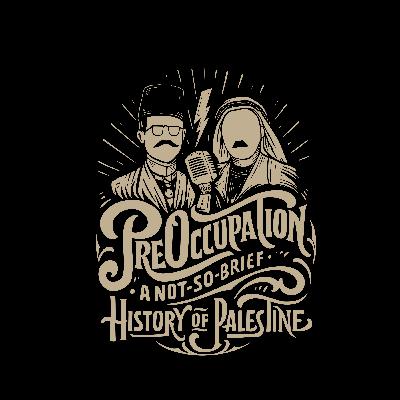
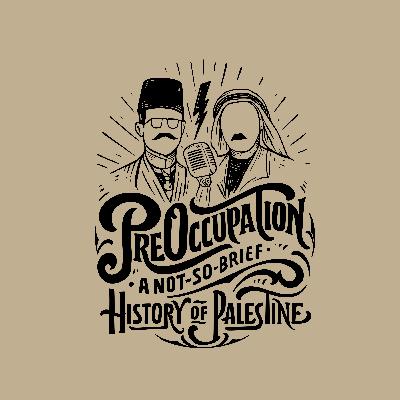
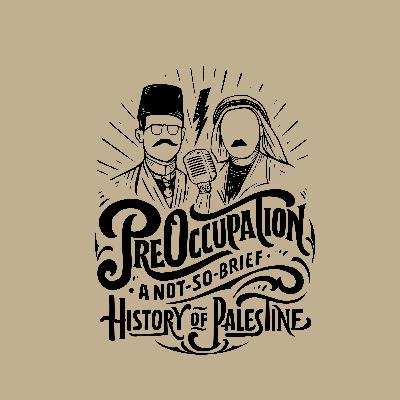
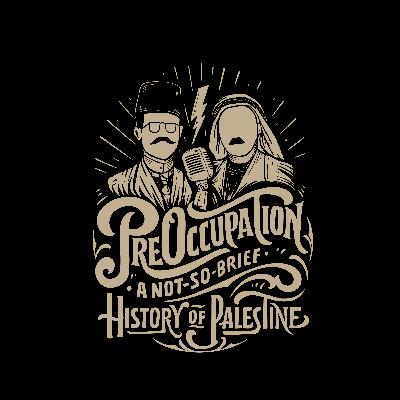
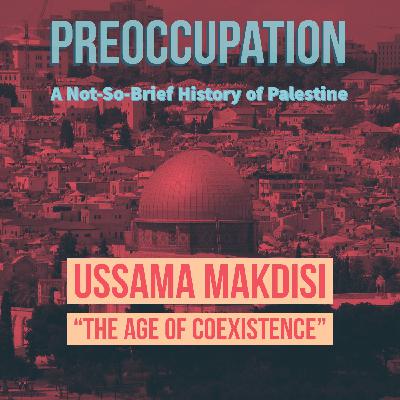
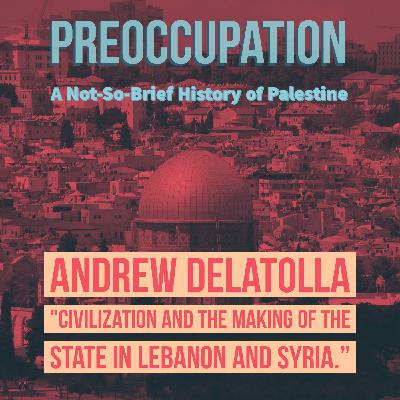
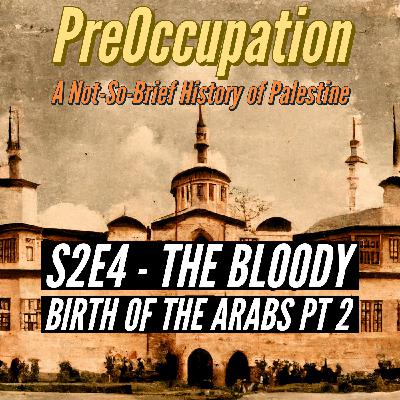
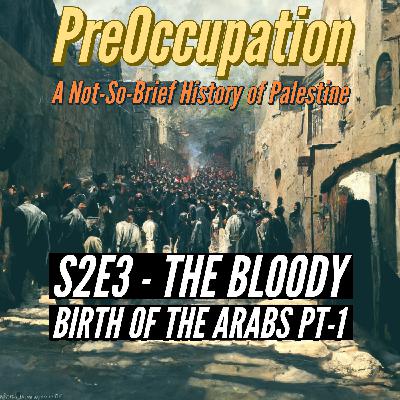
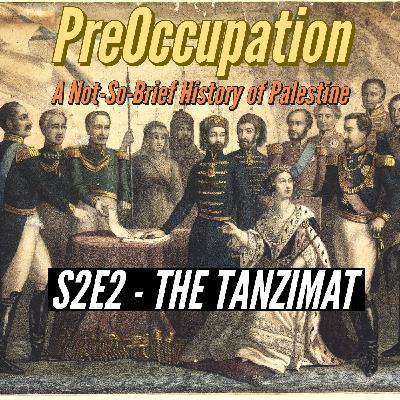
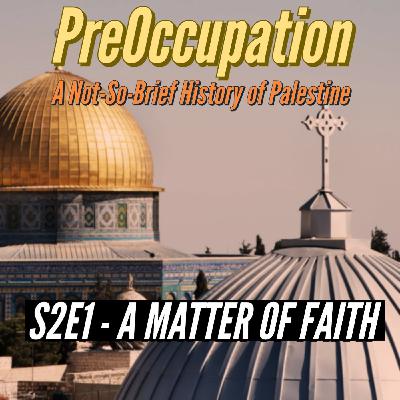
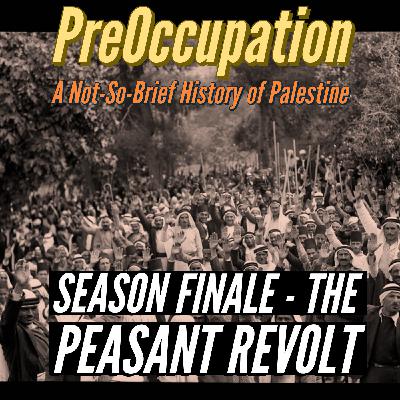
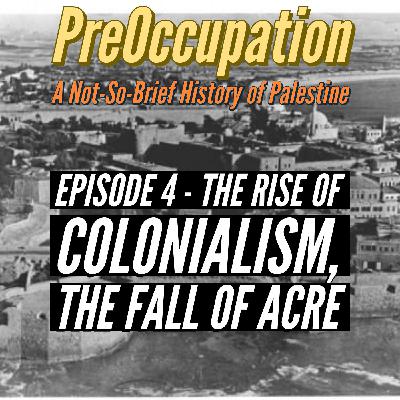
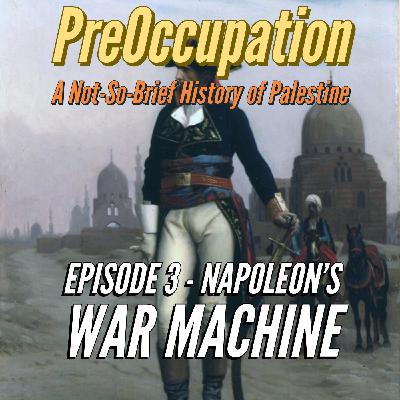
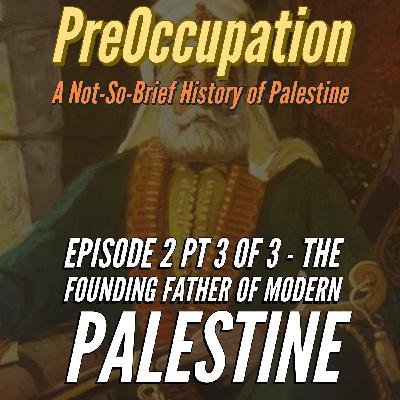
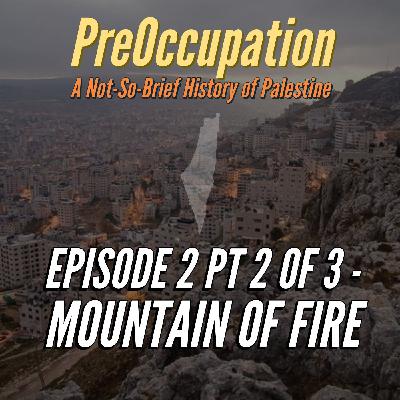
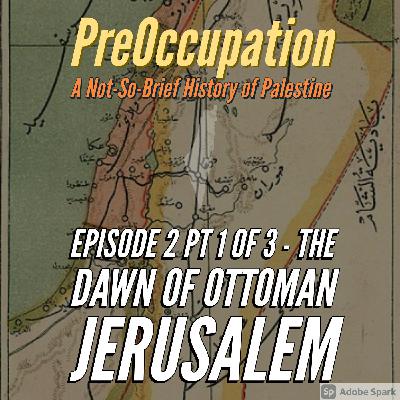



Talking about nationalism makes me think of my home, Australia, having one name for this massive island only came about with the settler colonial project. You can access maps that have all the indigenous names and the borders they kept. It really seems that if people didn't organise like the Europeans then they didn't really exist, neither did their hold on their country. Terranullius + a land without a people for a people without a land. They both mean the same thing and they're both lies.
everyone should listen to this podcast. Fantastic and faniscinating, informative and heart breaking.
This is so frustrating, I fully respect people who can have these convos without losing their shit, and im well aware that the losing of ones shit helps no one but fuck, I'm listening but coming so close to having to miss this ep. There needs to be truth telling! Zionists need to apologise and for that to happen they need to be honest with the civilian population of Israel, they need to admit that their narrative has always been full of lies! They need to be honest. Theres no other way forward
ok. My mind has been officially blown. Maybe I should have known this, but I didn't, maybe I shouldn't be so shocked, but I am. I think its around 22mins when he's talking about stories and never writing yourself in as the villain and Brits all reading the bible + realising uncomfortable facts about their past that my mind started collecting ingredients, but that they rewrote their story, collected new descendants + homeland that my mind was blown. Still is. Thank you for this. Also, woah.
Amazing Introduction! I have been waiting for someone to go deeper into the history of the Palestinians rather than making their focal point the history of the Zionist occupation of Palestine! looking forward for the rest of the episodes! Thank you Bassam